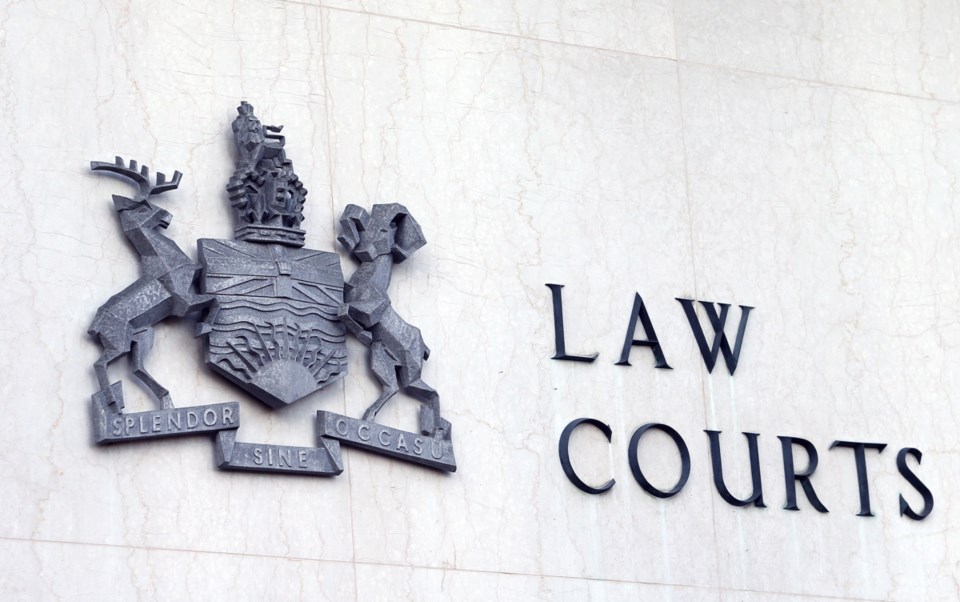The B.C. Supreme Court has upheld an arbitrator’s decision allowing former Victoria tent city residents to have overnight guests at their new home at 844 Johnson St.
In the judgment, Justice Neena Sharma dismissed an appeal brought by the Portland Hotel Society, the non-profit supportive housing provider that operates the building.
The society appealed the July 2017 decision of an arbitrator with the Residential Tenancy Branch which found that their guest-access policy contravened the Residential Tenancy Act.
The society also appealed the arbitrator’s conclusion that 844 Johnson St. fell under the Residential Tenancy Act and was not a “home-based health facility.”
Sharma found that the tenants are covered under the Residential Tenancy Act and should be afforded the same rights as tenants in market-priced housing.
The society “has not provided any justification of why tenants who are being given a social benefit of below market housing, in an effort to try to stabilize their living situation, ought to be given less legal rights than tenants paying market rates,” she wrote.
“It’s a really, really good win for us,” said tenant Doug Swait.
“Hopefully, PHS might ease up on us. It’s been a constant battle since moving in there. More important, it’s good for everyone else around to see that these things can be done. That you can stand up and fight for your rights.”
A lot of residents are happy because they can now start having their Christmas celebration and their relatives and friends can come by and bring them gifts, said Swait.
“A lot of people were pretty sad last Christmas.”
The arbitrator found the blanket guest policy was unenforceable with one minor exception — that the landlord could refuse access of specific individuals, under reasonable circumstances, and on a case-by-case basis.
When the building opened, new tenants were required to sign a residential tenancy agreement, to pay $375 rent and make a security deposit of $187.50. The agreement said visitors were permitted between 9 a.m. to 10 p.m., but the landlord could restrict access to visitors under reasonable circumstances. It stipulated that tenants were required to register their guests. The guests were required to show photo ID.
A sign at reception said visiting hours are from 8:30 a.m. to 10 p.m., that no one under 19 would be allowed in the building, that guests had to be signed in by a resident at the front desk and that guests had to present valid ID that would be retained for a week.
The residents’ council wanted the policy repealed and the chance to work with the Portland Hotel Society on an alternative guest policy.
Tenants complained that they had to be physically present to sign in a guest. Because there was no intercom, there was no way to contact the tenants if someone showed up to see them. Some believed they were risking their lives, using drugs alone in their room, because they were not allowed to have their partners or support persons stay overnight.
Friends were turned away because they didn’t have proper ID. Friends with children could not visit because of the age restriction.
Tenant Ana McBee complained that it was infuriating and demeaning to have her guests stopped at the front desk.
“Watching over us and storing our information is a social control tactic that further criminalizes an already socially marginalized group,” she said.
The Portland Hotel Society said identifying guests and banning them from staying overnight was crucial for resident safety. In its submission to the Residential Tenancy Branch, the society included a letter from a Victoria police inspector who said people who didn’t live in the building had assaulted, intimidated and extorted tenants and forced some out of their suites.
Douglas King, executive director of the Together Against Poverty Society, said the decision is vindication for the residents of 844 Johnson St.
“It’s vindication for the amount of time they spent struggling with the landlord fighting for their rights and it’s vindication for them to have those rights honoured at the Residential Tenancy Branch,” said King.
“There were promises made to the tenants that it would be permanent housing and that they would be given all the rights and privileges of other tenants under the Residential Tenancy Act and also that they would have some kind of a say in decision-making and management of the building.”
The court decision stresses that tenants in social and supportive housing must be covered under the Residential Tenancy Branch.
“The judge is very clear that there are no exemptions here for buildings like the one run by the Portland Hotel Society,” King said.
Vulnerable and homeless tenants who move into social housing should not have to leave their rights at the door, he said. “There are ways we can thrive in social housing that don’t involve taking away a person’s rights.”



